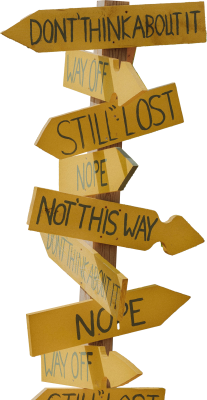Bankruptcy
Need Help Going Bankrupt?
Bankruptcy is a long-established solution available to any person facing serious debt problems in the UK (apart from Scotland) today. Many people who have no or very little disposable income to pay to creditors are turning towards Bankruptcy to solve their debt problems.
Our assessment team will discuss with you whether you qualify for Bankruptcy and how it will affect you. Bankruptcy is often seen as a final resort to resolving debt problems. If all the other debt solutions aren’t suitable then bankruptcy could be your only solution. In that case you will be provided with details of organisations that can help you with this.

What happens when you become Bankrupt?
1) In the long term - Most if not all your unsecured debts will be written off leaving you with debts that could not be included in the bankruptcy (such as secured debts, non-provable debts, student loans and some benefit overpayments) or none at all. 2) The short term - Stops Debt and bill collectors harassing you for money from debts included in the bankruptcy. 3) Your Job - Most of those with livelihoods would not be affected by being protected by Bankruptcy. However, this is not always the case. Before commencing this process, it is always best to consult a professional over this or speak to your employer’s HR Department.
What problems can arise from declaring Bankruptcy
Declaring yourself bankrupt is often seen as a last resort because it is more invasive and there are restrictions attached to it. The restrictions will be imposed usually for 12 months from the date of the bankruptcy order. Normally after 12 months you will be discharged although in certain circumstances the period can be longer.
3 Steps to Bankruptcy
1. Apply Online
Complete an online application via the Insolvency Service website at www.gov.uk. This needs to include details of your debts and your income and expenditure.

2. Costs
You will be required to pay a fee of £680 before your application can be considered. This can be paid in instalments. In certain circumstances, you may be able to get some help with this.

3. Decisions
Your bankruptcy application will be considered by an adjudicator who will if appropriate make the bankruptcy order. Shortly after the order is made, you will receive a copy of it. You may be interviewed about your situation by the Official Receiver (“The OR”).

Key Facts about Bankruptcy
You will not be able to act as a company director You will not be able to manage another business without telling you business associates that you have been made bankrupt You will not be able to obtain credit greater than £500 without explaining that you have been made bankrupt • Your employment may be affected, particularly if you have professional qualifications or hold a managerial position. If in doubt, check your contract of employment or consult your HR department If you have a business, particularly one that has overheads (e.g rent etc) it will most likely be closed by the OR/Trustee Once you have been made bankrupt, you will find your credit rating will be seriously affected and your ability to obtain future credit will be difficult and potentially more expensive You are legally obliged to cooperate with the OR/Trustee. If you are considered by to be guilty of any misconduct either before, or during, the period of Bankruptcy, the restrictions can be extended and, in some cases, discharge can be suspended If you own your home and there is equity in it, the OR/Trustee has the power to sell it to realise the equity The OR/Trustee has a duty to investigate (and potentially overturn) prior transactions e.g assets disposals, and payments made, particularly those involving connected parties
Am I Eligible
Am I eligible? You have unsecured debts greater than £5,000. You can afford the £680 fee. You have little or no disposable income to pay towards your debts.
The steps to Bankruptcy
1) You need to fill in an online application via the Insolvency Service website at www.gov.uk. This needs to include details of your debts and your income and expenditure. 2) You will be required to pay a fee of £680 before your application can be considered. This can be paid in instalments. In certain circumstances, you may be able to get some help with this 3) Your bankruptcy application will be considered by an adjudicator who will if appropriate make the bankruptcy order. Shortly after the order is made, you will receive a copy of it. You may be interviewed about your situation by the Official Receiver (“The OR”). 4) You are usually discharged from bankruptcy within 1 year. The Official Receiver will be looking to see if you have any assets in Bankruptcy, for example a property, that can be sold to raise money towards paying your creditors. If you have a monthly disposable income, after considering your essential living costs for you and your family, you could be required to make payments under an Income Payments Agreement/Order, which will last for 3 years. 5) Depending upon the circumstances, an outside Trustee may be appointed. This will be an Insolvency Practitioner.
This is a guide from GOV.UK with options for paying off your debts as recommended by the Money Helper.
Our opening hours
Monday to Thursday: 08:00 – 19:00
Friday: 08:00 – 16:00
Call: 0161 xxxxxxx